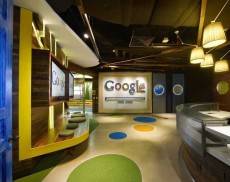September 25, 2014
New letting strengthens Cambridge’s growing reputation as a centre of technology
 In the largest office letting in Cambridge in over a decade, technology developer CSR plc has agreed with The Crown Estate to establish an expanded, 100,000 sq. ft. global HQ at Cambridge Business Park. Further lettings of a combined 11,000 sq. ft., to the multi-national computer technology company, Oracle, and to JDR Cable Systems, means that the 320,000 sq. ft. Business Park is now fully let, with over 2,000 people set to be working on site once these tenants move in. These latest lettings underline Cambridge’s growing reputation as a centre of technology – where its success this sector has even led to it being referred to as the “Silicon Fen”, the UK’s equivalent of California’s Silicon Valley. (more…)
In the largest office letting in Cambridge in over a decade, technology developer CSR plc has agreed with The Crown Estate to establish an expanded, 100,000 sq. ft. global HQ at Cambridge Business Park. Further lettings of a combined 11,000 sq. ft., to the multi-national computer technology company, Oracle, and to JDR Cable Systems, means that the 320,000 sq. ft. Business Park is now fully let, with over 2,000 people set to be working on site once these tenants move in. These latest lettings underline Cambridge’s growing reputation as a centre of technology – where its success this sector has even led to it being referred to as the “Silicon Fen”, the UK’s equivalent of California’s Silicon Valley. (more…)






 Avanta Serviced Office Group has signed a deal to establish a new business centre in the heart of London’s Tech City at The Eagle, a 27 storey art-deco-style development on City Road, EC1, from Mount Anvil – Central London’s specialist residential-led developer. The centre is set to open on the 1st March 2015. The new centre will provide over 26,000 square feet of flexible office space over two floors, with approximately 400 desks. Set within a mixed-use development comprising retail, affordable accommodation, offices and high-end residential, it is located within TFL’s Zone 1, approximately five minutes’ walk from Old Street Rail and Underground Station, just two stops from Kings Cross.bThis is Avanta’s first site within Tech City, also known as Silicon Roundabout, which is the third largest technology start-up cluster in the world and home to over 15,000 growing businesses.
Avanta Serviced Office Group has signed a deal to establish a new business centre in the heart of London’s Tech City at The Eagle, a 27 storey art-deco-style development on City Road, EC1, from Mount Anvil – Central London’s specialist residential-led developer. The centre is set to open on the 1st March 2015. The new centre will provide over 26,000 square feet of flexible office space over two floors, with approximately 400 desks. Set within a mixed-use development comprising retail, affordable accommodation, offices and high-end residential, it is located within TFL’s Zone 1, approximately five minutes’ walk from Old Street Rail and Underground Station, just two stops from Kings Cross.bThis is Avanta’s first site within Tech City, also known as Silicon Roundabout, which is the third largest technology start-up cluster in the world and home to over 15,000 growing businesses.















April 7, 2014
Can building design presage a fall from grace for the world’s tech giants?
by Mark Eltringham • Architecture, Comment, Technology, Workplace design
(more…)